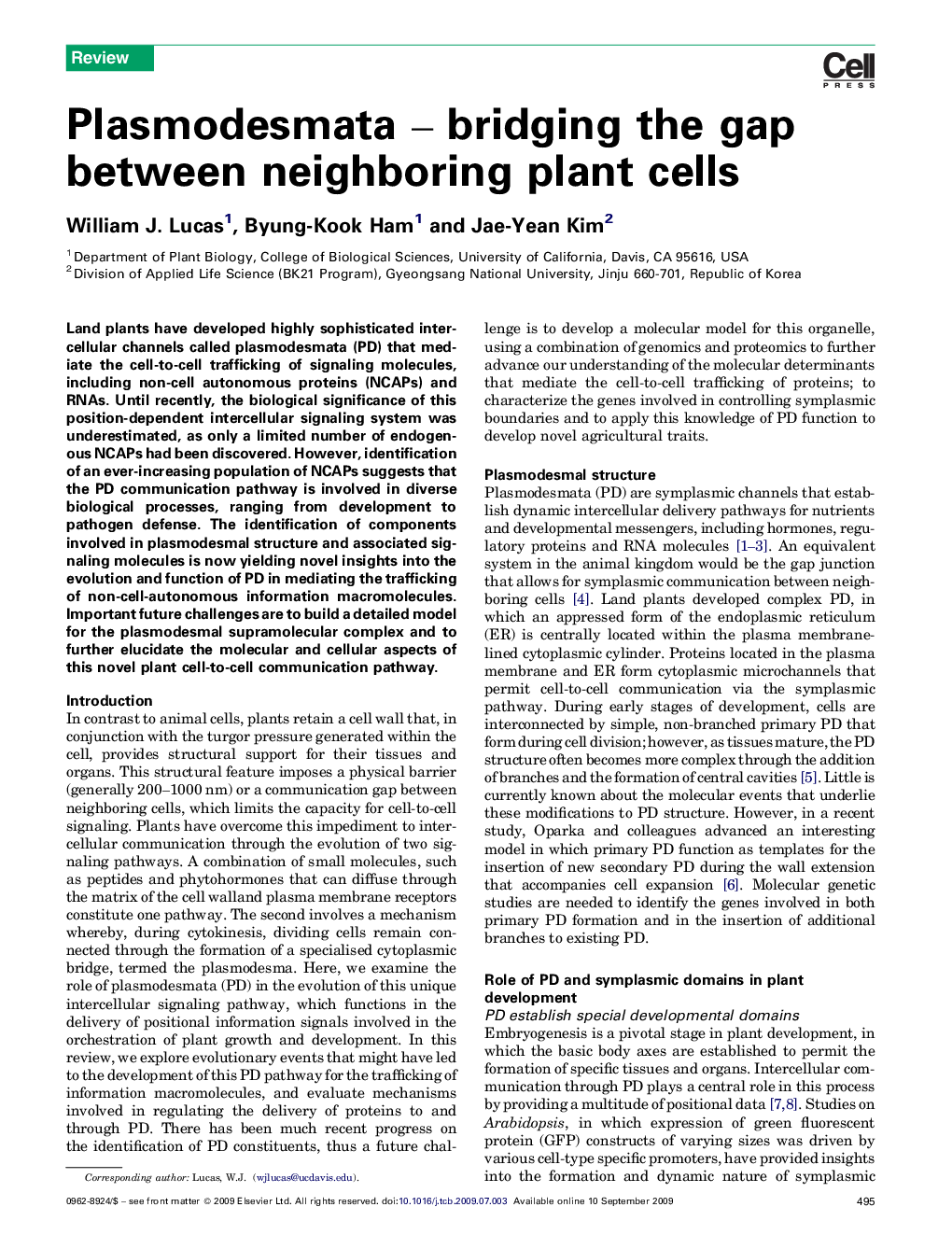| Article ID | Journal | Published Year | Pages | File Type |
|---|---|---|---|---|
| 2204907 | Trends in Cell Biology | 2009 | 9 Pages |
Land plants have developed highly sophisticated intercellular channels called plasmodesmata (PD) that mediate the cell-to-cell trafficking of signaling molecules, including non-cell autonomous proteins (NCAPs) and RNAs. Until recently, the biological significance of this position-dependent intercellular signaling system was underestimated, as only a limited number of endogenous NCAPs had been discovered. However, identification of an ever-increasing population of NCAPs suggests that the PD communication pathway is involved in diverse biological processes, ranging from development to pathogen defense. The identification of components involved in plasmodesmal structure and associated signaling molecules is now yielding novel insights into the evolution and function of PD in mediating the trafficking of non-cell-autonomous information macromolecules. Important future challenges are to build a detailed model for the plasmodesmal supramolecular complex and to further elucidate the molecular and cellular aspects of this novel plant cell-to-cell communication pathway.
